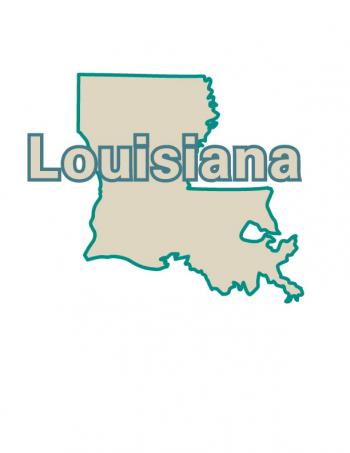
War’s Ravages Were Far Away
Morgan City and Berwick were among the most fought over places in Louisiana during the Civil War. Morgan City—then known as Brashear City—was the ending place of an 80-mile rail line that began across the Mississippi River from New Orleans at Algiers, and, facing on Berwick Bay, was a port for steamboats in the Gulf. That made the area strategically important to both sides in the war.
But in 1861, when fighting was just beginning and everybody thought all would be over quickly, people seemed not to be too worried about a threat from the enemy—even the soldiers who were sent there to be trained and to watch over the bay.
Camp Lovell was established at Berwick in the fall of 1861 and named for General Mansfield Lovell, the Confederate commander in New Orleans who was then much admired in Louisiana. His reputation would fall quickly a year later when he surrendered the city to federal troops without firing a shot. But that was in the future and entirely unanticipated on Nov. 20, 1861, when a soldier identified only as Frank, wrote a letter home assuring everyone that he and his buddies would keep them safe.
“You have no doubt heard … of our being encamped opposite the terminus of the New Orleans and Opelousas Railroad at Berwick City,” he wrote. “The position is certainly a very important one and should …. New Orleans be threatened with attack, our friends at home may rest assured that the Fourth Regiment will do everything expected of it.”
Mud was the biggest enemy Frank and his friends had to contend with that November.
“We have a pleasant camp as long as it does not rain,” he wrote, “for our tents afford little protection against the weather, and the mud … is very disagreeable to us.” The tents provided sparse accommodations, he said, offering “my knapsack on an empty box for a desk and a cypress board for a seat, with the inkstand lying on the ground.”
His bed, made of rough cypress lumber, was on the opposite side of the tent. “This is the most important piece of furniture in the tent and answers several purposes,” he said, acting as a bed at night and during the daytime as a “chair, sofa, or table, as the case may be.”
There was a shelf in the back part of the tent “on which are strewn combs, pipes, tobacco, brushes, a few books” and a pack of cards that apparently saw regular use. Also on the shelf were a bottle and a tin cup, “which together with the [cards], tobacco and pipe, are all intended for the entertainment of the company, most especially … the bottle.”
The bottle notwithstanding, Frank attended camp services on Sunday, possibly because “quite a number of ladies were in attendance.”
He looked forward to better accommodations soon, since his colonel was arranging to have more comfortable barracks built “as soon as he can make arrangements for lumber.”
It appears those barracks were up a month later at Christmas, when another letter, written by a private in the Delta Rangers, tells us that the ravages of war were still distant from life at Camp Lovell.
The Christmas dinner included chicken, roasted and stewed; ham with fried eggs; lobsters, cabbage, preserved pears; and the choice of apple or pumpkin pie for dessert. That night, the private wrote, one of the men gave a supper in his room and “the St Charles Hotel couldn’t boast of better.”
After more chicken, turkey, and assorted side dishes, the evening ended with strong coffee served “with Irish whiskey and song.”
Heavy fighting would come to the area almost exactly a year later and leave much of it devastated, but for the soldiers at Camp Lovell in 1861, that was far, far away.
You can contact Jim Bradshaw at jhbradshaw@bellsouth.net or P.O. Box 1121, Washington LA 70589.
- Log in to post comments
